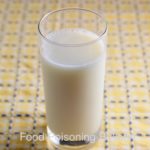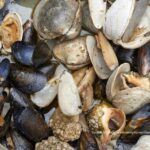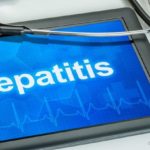USDA is withdrawing its proposed framework to reduce Salmonella in poultry. In October 2022, that agency released the framework to reduce Salmonella infections linked to poultry. Food safety advocates were pleased to see this framework and were hopeful it would lead to fewer illnesses and deaths. In that announcement the USDA stated, "The Centers for Disease Control and Prevention (CDC) estimates that Salmonella bacteria cause approximately 1.35 million human infections and 26,500 hospitalizations in the United States every year. Of those infections, over 23% are attributed to poultry consumption." The framework had three key components that, together, supported a comprehensive approach to controlling Salmonella in poultry. They were: Requiring that incoming flocks be tested for … [Read more...]
Minnesota PFAS Fish Consumption Guidance Updated
Minnesota PFAS fish consumption guidance has been updated by the Minnesota Department of Health (MDH). PFAS is per- and polyfluralkyl substances that are found in some waters in 10 Minnesota counties. In the Twin Cities area, the counties of Anoka, Carver, Dakota, Hennepin, Ramsey, and Washington counties are affected. In greater Minnesota, waters in Douglas, Martin, McLeod and St. Louis counties are affected. PFAS are chemicals that are harmful to human health. They are used to make products that are resistant to heat, oil, stains, grease, and water. These chemicals can accumulate in the body over time and can affect health. They are tied to developmental effects, including low birth weight in infants and a weaker immune system in children. Exposure to PFAS can cause changes in … [Read more...]
Serving Ham For Easter? Learn Food Safety Tips From USDA
Are you serving ham For Easter dinner? Learn these food safety tips from the USDA and have a happy and safe holiday. Did you know that hams can be ready to eat, fresh hams that must be cooked before eating, picnic hams, and country hams? Learn their storage times, cooking methods, and safety tips. It's important that you know exactly what kind of ham you have before you learn how to cook it. Ask your butcher or supplier to identify the ham exactly. They will often have cooking directions and times you can use. You can see the chart with all of the kinds of hams at the USDA web site. The general rule is that all raw fresh ham and ready to eat hams should be cooked at 325°F until it reaches the minimum internal temperature of 145°F. Then let the meat rest for a minimum of three … [Read more...]
Protect Yourself in the Wake of Cuts to FDA, USDA, and CDC
Learn how to protect yourself in the wake of cuts to FDA, USDA, and CDC. Today we learned that many scientists and food safety experts have lost their jobs at those agencies. What does that mean to you and your family and how can you protect yourself? You have always been the final piece of the puzzle for food safety. Contaminated food has always been sold; in fact, the government has allowed chicken to be sold when it is contaminated with a certain level of Salmonella, and recalls often come after people have been sickened by contaminated food. So if you are already following food safety precautions you are ahead of the game. First of all, always follow the rule of Clean, Separate, Cook, and Chill. Wash your hands before you start cooking. Start with a clean kitchen and … [Read more...]
Seven Pathogens Cause 9.9 Million Illnesses Every Year in U.S.
The CDC says that seven pathogens cause 9.9 million illnesses every year in the United States. This estimate is used to allocate resources and prioritize interventions. The seven pathogens are Campylobacter, Clostridium perfringens, invasive Listeria monocytogenes, norovirus, Salmonella, Toxoplasma gondii, and Shiga toxin-producing E. coli (STEC). And those illnesses cause about 53,000 hospitalizations and 931 deaths. Norovirus caused the most illnesses, followed by Campylobacter, and Salmonella. Salmonella infections were the leading cause of death, with 238 every year, followed by Campylobacter with 197 deaths and norovirus with 174. The issue with this estimate is that public health reports are limited because not all people sickened by those pathogens seek medical care and … [Read more...]
Consumer Reports Tests Baby Formula For Lead and Arsenic
Consumer Reports has tested baby formula for the heavy metals lead and arsenic and found some with concerning levels. The tested 41 types of powdered formula, looking at established formulas like Enamel and Similac, popular store brands, imported brands, and newer foods like Bobbie. About half of the samples had potentially harmful of at least one contaminant. But the other half had low or no levels of potentially problematic contamination, so parents have good options to choose from. The FDA announced a new initiative to strengthen its oversight of the formula industry one day after Consumer Reports shared the results with that agency. Brian Ronholm, head of food policy for CR said in a statement, "It’s very encouraging to see the FDA issue this announcement immediately after … [Read more...]
Eight Firms Added to FDA Import Alert For PFAS in Clams
Eight firms have been added to and FDA Import Alert for PFAS in clams. PFAS include chemicals that resist grease, oil, water, and heat. They were first used in the 1940s. Some PFAS are authorized by the FDA for limited use in food packaging, cookware, and food processing equipment. Accumulation of some PFAS does occur in humans and animals, and some types of PFAS have been associated with serious health problems. The FDA has been conducting a targeted survey for PFAS in molluscan shellfish, including clams, such as domestic and imported clams, both raw and processed; mussels; oysters; and scallops. These filter feeders remove nutrients and chemicals from the water, which can concentrate in the flesh of the animal. The FDA detected elevated levels of PFAS, including per- and … [Read more...]
Minnesota Starts Testing Raw Cow Milk for H5N1 Bird Flu
Minnesota is starting to test raw cow milk for H5N1 bird flu, according to a press release from the Minnesota Department of of Agriculture (MDA). The testing will start beginning the week of February 24, 2025. This is intended to identify where the virus is present, to monitor trends, and prevent its spread to dairy herds and poultry flocks around the state. MDA Commissioner Thom Petersen said in a statement, "H5N1 is an emerging disease in dairy cattle, and conducting disease surveillance supports the state’s ability to effectively respond to outbreaks and limit the potential impact on the livestock and poultry industries, as well as on public health." The notice stated that there are no concerns about the safety of the public milk supply, since all milk sold in stores to the … [Read more...]
Hepatitis A Exposure at Rheta’s Dining Hall at UW-Madison
A possible hepatitis A exposure has been reported for anyone who ate at Rheta's Market dining hall at the University of Wisconsin-Madison on certain dates. That hall serves about 4,000 students and staff. University of Wisconsin-Madison's University Health Services (UHS) sent a notice to students and faculty on Friday, February 7, 2025. Health services identified a student worker who was showing symptoms of hepatitis A. The student was infectious while working, prompting the notice and warning. Officials have since cleared Rheta's Market to resume normal operations. The news report did not state which dates the student worked. UHS Director Jack Baggott said in the email, "The diagnosed student will not return to work until they are medically cleared. This process is standard and … [Read more...]














